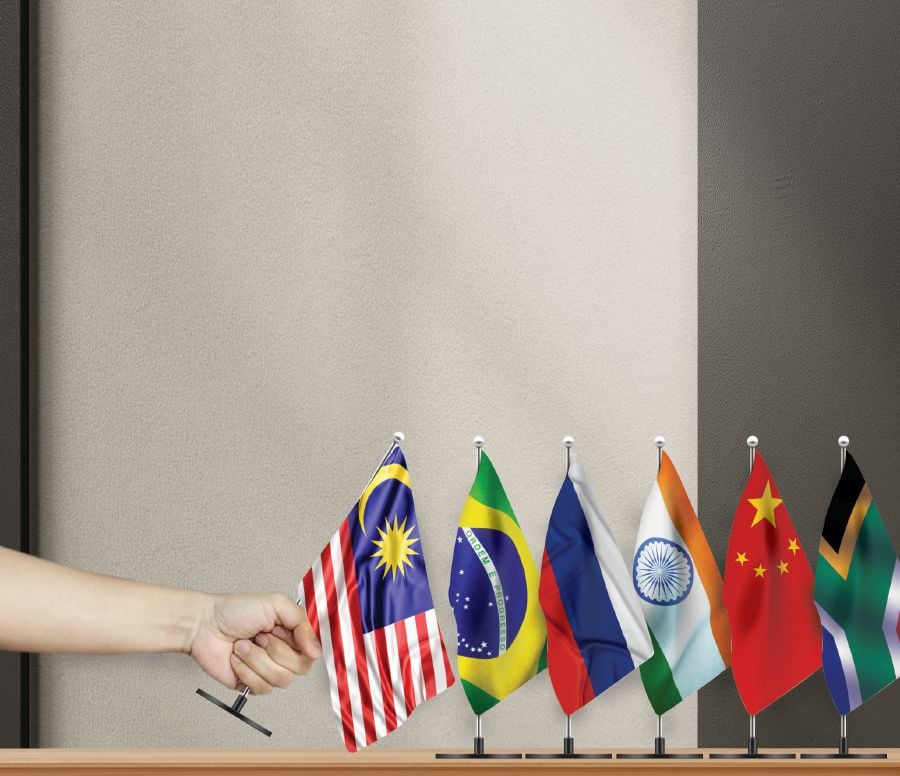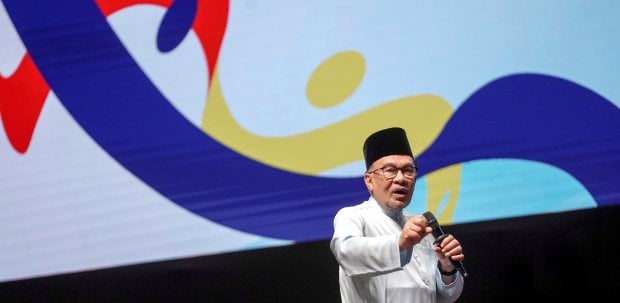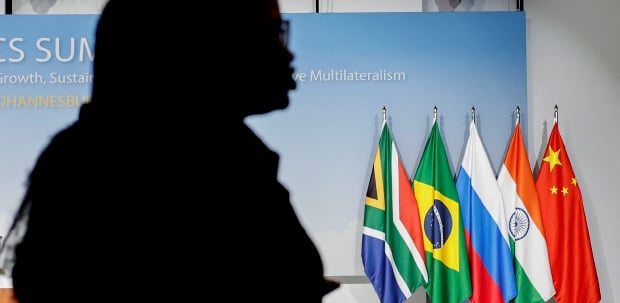RECENTLY, Prime Minister Datuk Seri Anwar Ibrahim stated that Malaysia was preparing to join the emerging economic group known as BRICS - an acronym for the Brazil, Russia, India, China, and South Africa group.
BRICS was established with the goal of enhancing economic, political and cultural cooperation among its member countries. Officially formed in 2009 (initially without South Africa, which joined in 2010), BRICS has become a significant platform for developing countries to advocate for their interests on the global stage.
In a video interview posted by Chinese media outlet Guancha on June 16, 2024, Anwar said: "We have made a decision, we will be placing the formal procedures soon ... we are just waiting for the final results from the government in South Africa."
In January, the BRICS bloc expanded its membership to include Egypt, Ethiopia, Iran, Saudi Arabia and the United Arab Emirates (UAE). With this expansion, BRICS now encompasses more countries with rapidly growing economies and significant resources, creating more opportunities for cooperation and trade for the new member nations.
Malaysia's participation in BRICS is expected to bring various benefits and advantages, particularly in the aerospace, artificial intelligence (AI) and defence technology sectors. These sectors are among the most critical for the country's technological and economic development.
BRICS countries, especially Russia, China and Brazil, possess high technological capabilities in aerospace, AI and defence sectors. Brazil, for instance, has a sophisticated defence industry with companies like Embraer, which is renowned globally for its military and commercial aircraft. Embraer is also the world's third-largest civilian aircraft manufacturer after Boeing and Airbus.
By joining BRICS, Malaysia can access the latest technologies and knowledge transfer that can enhance the technical capabilities of local industries. This includes aviation technology, aircraft development, satellite technology, AI and defence systems which are crucial for the advancement of these sectors.
Furthermore, research and development (R&D) collaboration can be strengthened. These include projects in space exploration, aircraft development, satellite technology, AI applications, and defence technology that can accelerate innovation in Malaysia's aerospace, AI and defence sectors.
Such collaborations can not only speed up technological progress but also reduce research costs through resource and expertise sharing.
Membership in BRICS can also attract foreign direct investment into Malaysia's aerospace, AI and defence industries. BRICS countries represent large and rapidly growing markets. Access to these markets for products and services in these three sectors can help expand exports and increase the global competitiveness of Malaysian companies.
Investments can come in the form of manufacturing plants, research centres and training facilities that can generate jobs and boost the local economy.
The New Development Bank (NDB) established by BRICS can provide financing for major projects in the aerospace, AI and defence sectors. This includes the development of infrastructure and long-term research initiatives that require substantial capital. Such financing is crucial to ensure the sustainability and success of major projects that can bring significant changes to these industries.
Collaboration with BRICS countries can also open up training and education opportunities for professionals in these sectors in Malaysia. Student exchange programmes, technical training and academic collaborations can improve the quality of the workforce in these sectors.
Human capital development is key to industrial progress, and such opportunities can ensure Malaysia has a highly skilled and internationally competitive workforce.
Apart from economic and technological benefits, membership in BRICS also strengthens Malaysia's diplomatic position on the global stage. This can lead to better relationships with major countries and bolster Malaysia's stance in international negotiations.
Strong diplomatic ties are additional factors in ensuring economic stability and progress in the long term. Thus, membership in BRICS can significantly boost our development and advancement while simultaneously helping us become more competitive globally.
The writer is Associate Professor at the Department of Mechanical and Aerospace Engineering, International Islamic University Malaysia (IIUM)





